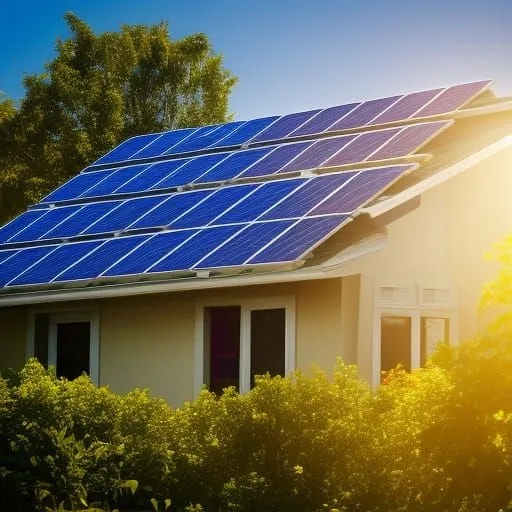How solar panel work

A solar panel is a device that converts sunlight into electricity using a process called the "photovoltaic effect." The panel is made up of many small solar cells, which are made of special materials called semiconductors. These materials can absorb sunlight and release electrons, which are the tiny particles that carry electricity.
When sunlight shines on the solar panel, it excites the electrons in the semiconductors and causes them to flow through the material in a certain direction. This creates a flow of electricity, which can be captured and used to power things like lights, fans, or even entire homes and businesses.
The solar panel itself does not generate heat or light, but it does absorb the energy from the sun's rays and converts it into electricity. The amount of electricity produced by a solar panel depends on factors such as the amount of sunlight it receives, the size and efficiency of the panel, and the temperature and angle of the sun.
Solar panels are typically installed on rooftops or in large fields or farms, where they can receive the maximum amount of sunlight. They are connected to an inverter, which converts the direct current (DC) electricity generated by the solar panel into alternating current (AC) electricity that can be used to power homes and businesses.
Overall, solar panels are a great source of renewable energy because they do not emit harmful pollutants or greenhouse gases, and they can generate electricity for many years with little maintenance.
why should we use more solar energy?
Firstly, solar energy is a renewable source of energy, which means that it is a sustainable and long-term solution to our energy needs. Unlike fossil fuels, which are finite resources that will eventually run out, the sun is a constant source of energy that will continue to shine for billions of years.
Secondly, solar energy is clean and does not produce harmful pollutants or greenhouse gases that contribute to climate change. This makes it a much more environmentally friendly option than fossil fuels, which can have serious impacts on air and water quality, as well as human health.
Thirdly, solar energy can be generated locally and distributed through small-scale systems, which can help to reduce our dependence on large, centralized power grids. This can make our energy supply more resilient, efficient, and cost-effective in the long run.
Finally, using more solar energy can help to create new jobs and stimulate economic growth, particularly in the areas of research, development, and manufacturing. This can help to boost local economies and create new opportunities for innovation and entrepreneurship.
Overall, there are many compelling reasons why we should use more solar energy, and it is an important step towards a more sustainable and equitable future for all.
